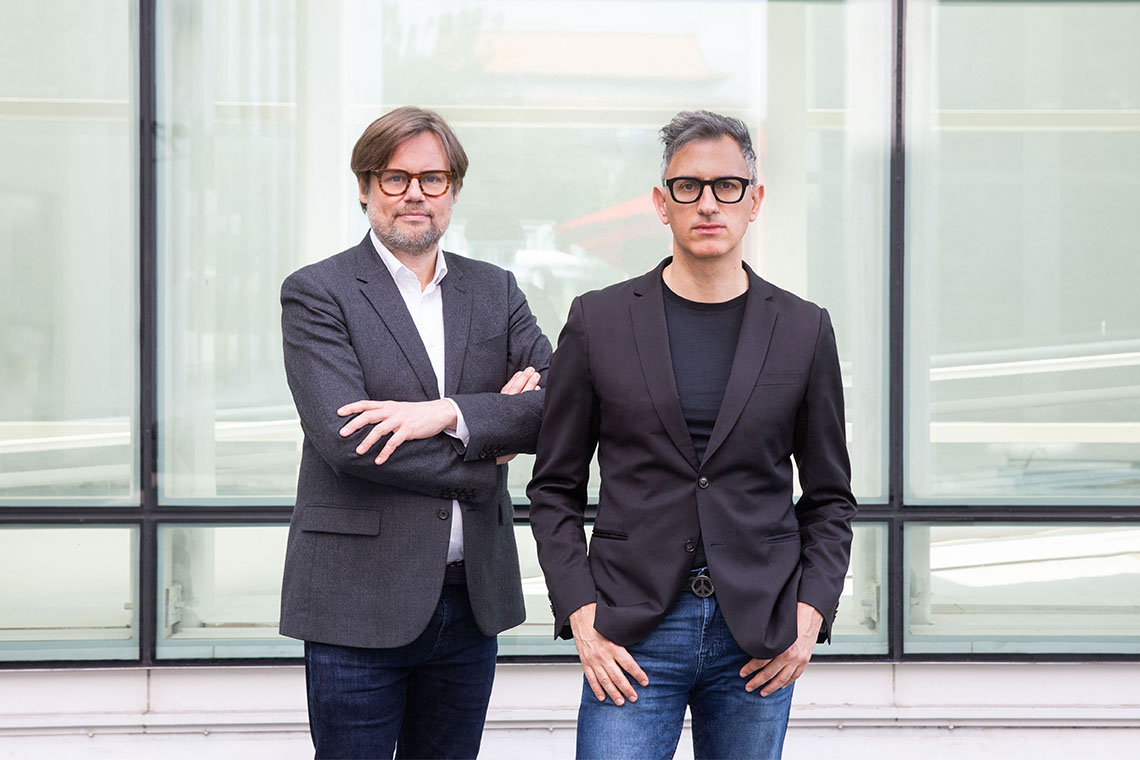The artistic directors of the 2025 Taipei Biennial speak to us about the upcoming theme and what we can expect in October.
Canvas: The title of the biennial is Whispers on the Horizon. What does this mean?
Till Fellrath: It is intended to be a poetic title that leaves things open-ended and makes you imagine a situation or connects you to an experience. A whisper is not a loud statement, but something you might hear but not fully understand. It could be a calling. Or it could come from the inside – so deep inside that you can’t quite catch it – or perhaps from the outside, from a faraway place as a subtle voice on the horizon. However, on the other hand, you can never reach the horizon. It’s a point in reality that does not exist but which you keep reaching and yearning for as if something is calling you.
Sam Bardaouil: The first time we visited Taipei was for the Biennial in 2014. Since then, we’ve become familiar with the conversations happening locally, whether about the arts or history. When we were invited to curate the 2025 edition, we wanted to immerse ourselves, so we came back many times and did a lot of research. We spoke to historians, filmmakers, literary figures and people who have been thinking about the current sentiment in Taiwan and how this can be captured. One notion that continued to come up was this feeling of being in suspension. Taiwan is a place that is very conscious of the past and the consequences that trickle down into questions about identity, politics and history. Working on the Taipei Biennial brings up questions of where we come from, where we go, and how we navigate all of these complex and contested forces that pull in different directions. This includes Indigenous cultures, which have been marginalised for many years, and a strong desire for rootedness.
How does the feeling of yearning relate to some of the participating international artists?
SB: One of the main questions we had when we started discussing with artists, before finalising any lists or inviting specific artists to the Biennial, was an open question about yearning. What do you yearn for? How does your work reflect a sense of pursuit or a search for completeness? What is the void that you are trying to fill? All the artists that ended up in the 14th edition are people who are very conscious of that pursuit.
TF: Art can often express something that you cannot say with words. That’s why you have art, and great art is when you don’t need a manual or explanation to connect. One of the starting points is this universal feeling of yearning. It’s deep and very personal. We are all humans with an engrained longing for something or for a different reality. The starting point came from visiting Taiwan. When we came here as outsiders, we felt a desire for something else, as if it’s a place that wants to be somewhere else or somehow different and it is stuck in a particular moment in time.
Is there anything you can share about the commissions so far?
TF: There are several commissions and a large number of artists under 40 years old. What we are trying to do is capture something very current. The commissions will also have a strong link with the architecture of the Taipei Fine Arts Museum, which is a unique building with interesting architecture. I think the space also expresses yearning, as if it is reaching for something. The location shows aspirations of building a different kind of society, not unlike what’s happening in many places in the Gulf. Institutions are built with something in mind, and not just to hang a few artworks, but they also want to change society and facilitate creative expression and dialogue.
SB: Some commissions will be rather monumental, dealing with the outdoor and indoor spaces and bridging the two. There’s also a wide range of media, such as sound works, sculpture and film. It will be very exciting to see how they transform the experience of the spaces.
Why was it important to highlight artists aged under 40?
TF: It’s valuable for an international biennial to provide this platform and opportunity. A lot of the artists who we ended up working with have this deep yearning at the root of who they are and their practices. We also try to work with artists who create a strong dialogue with generations to come.
What is your starting point or process to understand the context of the country where you’re curating a biennial?
SB: Listening. We cannot ever underestimate how important it is to genuinely listen to people who are invested in the scene and who know way more than you, as well as listening with a genuine curiosity to learn. This is the way we’ve approached all our projects. Every project is an opportunity to learn. It’s also a privilege to be able to add to your knowledge and understanding of the complexity of the world and be more conscious of its nuances and sensitivities.
14th Taipei Biennial: Whispers on the Horizon runs from 1 November 2025 until 29 March 2026



